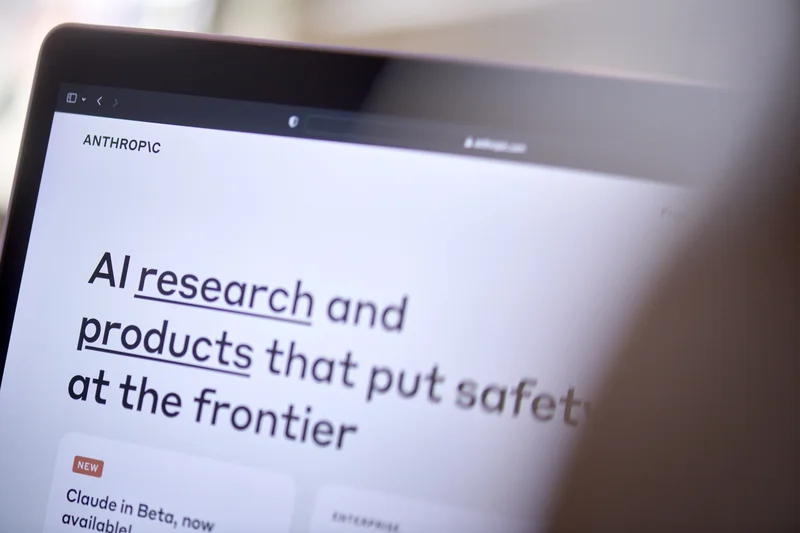XLM Insight | Stellar Lumens News, Price Trends & Guides
XLM Insight | Stellar Lumens News, Price Trends & Guides
Anthropic is partnering with Iceland's Ministry of Education and Children to bring Claude, their AI assistant, to teachers across the nation. The stated goal is to explore how AI can transform education. Teachers will gain access to Claude for lesson prep, receiving tech support, educational resources, training, and a dedicated support network. Iceland's Minister of Education, Guðmundur Ingi Kristinsson, framed it as taking "the leap" to examine AI's use in education.
But is this initiative a visionary step, or a potentially miscalculated bet?
The most immediate benefit, according to Anthropic, is time savings for teachers. They claim Claude can create personalized lesson plans and adapt materials for different learners. Anthropic's Head of Public Sector, Thiyagu Ramasamy, even suggests it can alleviate the "hidden burdens" of paperwork and administrative tasks.
If true, even a modest reduction in administrative overhead—say, a 10% reduction in non-teaching hours—could free up significant time for direct student interaction. But let's be clear: a 10% reduction needs to be rigorously measured, not just asserted. We need to see the before-and-after data on teacher time allocation to validate these claims. How will Anthropic and the Icelandic government actually measure this?
Furthermore, the initiative aims to leverage Claude's multilingual capabilities to support a wider range of students. This could be particularly valuable in a diverse classroom setting. It's also a smart move for Anthropic, as it allows them to stress Claude's language processing skills.
The biggest risk is the unproven return on investment (ROI). While the press release highlights potential benefits, it lacks concrete data on the actual impact of AI on educational outcomes. Will students perform better? Will their critical thinking skills improve? Will teacher satisfaction increase? These are crucial questions that need to be answered with empirical evidence, not just optimistic projections.
I've looked at hundreds of these corporate announcements, and this is the part that I find genuinely puzzling. Often, the announcement is made before the actual impact can be measured.

Moreover, the initiative raises concerns about data privacy. How will student data be protected? Who will have access to the data generated by Claude's interactions with teachers and students? What measures are in place to prevent misuse or unauthorized disclosure of sensitive information? These issues need to be addressed transparently to ensure public trust.
Anthropic also notes that the European Parliament Archives Unit has deployed Claude to reduce document search time by 80%. That's a significant number, but searching documents is fundamentally different than teaching students. A more relevant comparison would be a similar pilot program in education, but the details on that are scarce.
And then there's the question of language. While Claude recognizes Icelandic (a relatively low-resource language), how well does it understand the nuances of Icelandic culture and pedagogy? Can it truly adapt its teaching methods to the specific needs of Icelandic students? Or will it simply regurgitate generic educational content that's been translated into Icelandic?
Interestingly, while Anthropic is forging ahead with its Icelandic partnership, details have emerged about a potential merger with OpenAI following Sam Altman's brief ousting. According to court documents, Ilya Sutskever, an OpenAI cofounder, said that Anthropic expressed "excitement" about taking over OpenAI's leadership. OpenAI debated merging with one of its biggest rivals after firing Sam Altman, court docs reveal.
The merger ultimately didn't happen due to "practical obstacles," but the fact that it was even considered highlights the intense competition in the AI space. It also raises the question of whether a combined OpenAI-Anthropic entity would have been better positioned to tackle the challenges of AI in education. (The acquisition cost would have been substantial, obviously.)
It's tempting to speculate about what could have been. Would a unified AI powerhouse have been able to develop more effective educational tools? Or would it have simply created a monopoly that stifled innovation? We'll never know for sure.
Anthropic's partnership with Iceland is a fascinating experiment, but it's far from a guaranteed success. The potential benefits are clear: increased efficiency, personalized learning, and enhanced support for diverse students. However, the risks are equally significant: unproven ROI, data privacy concerns, and the challenge of adapting AI to the nuances of local culture. Ultimately, this initiative should be viewed as a proof-of-concept, not a revolutionary transformation of education. Let's see the data before we declare victory.